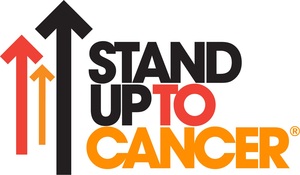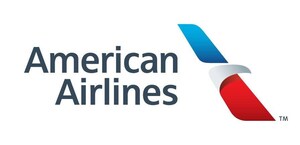Stand Up To Cancer Catalyst® Launches 10 Clinical Trial Projects Combining Cancer Treatments from 9 Different Pharmaceutical Companies to Explore Innovative Approaches and Find New Indications for Blockbuster Drugs from Major Companies to Improve Patient Outcomes
Medicines provided by SU2C Catalyst Charter Supporters Merck, Bristol-Myers Squibb, and Genentech are focus of unprecedented effort
PHILADELPHIA, Oct. 12, 2017 /PRNewswire-USNewswire/ -- Stand Up To Cancer (SU2C) has awarded 10 SU2C Catalyst® clinical trial projects in which researchers from more than 30 institutions collaborate across academic and corporate borders on clinical trials -- with correlated translational research which will deepen our understanding of why treatments are effective -- across a variety of cancers, in a program supported by industry. The inaugural SU2C Catalyst projects will explore new uses for an array of powerful medicines, from the three SU2C Catalyst Charter Supporters and six other pharmaceutical companies, the American Association for Cancer Research, SU2C's Scientific Partner, announced today.
Grants to support the trials, as well as access to medicines, are being provided by the three Charter Supporters: founding collaborator Merck (known as MSD outside the US and Canada), as well as Bristol-Myers Squibb Company and Genentech, a member of the Roche Group. These Charter Supporters offered compounds -- both new pharmaceutical compounds that they are developing, and approved agents that can be investigated for other uses -- to be used by the academic cancer research community, singly or in combination with products from the Charter Supporters or other companies. The use of these treatments and combinations with compounds from additional companies -- in some cases triple combinations -- were proposed by the academic research community in response to competitive Requests for Proposals. The proposals were evaluated and selected by industry-specific sub-committees, predominantly composed of leading academic scientists.
SU2C Catalyst establishes a mechanism through which industry and academic scientists in the cancer community conduct SU2C collaborative research projects to deliver benefits for patients and society. In addition to creating these opportunities for innovative collaboration, SU2C Catalyst significantly expedites the process of going from ideas to contracts to trials, compared to traditional investigator-initiated studies.
"This unique industry/academic collaboration has reduced the time for SU2C to get clinical trials started by more than 75 percent while bringing significant scientific rigor to the selection and oversight of the projects," stated SU2C President and CEO Sung Poblete, PhD, RN. "SU2C actively manages these grants to minimize delays and support the achievement of key milestones."
"Where companies often focus on an approval pathway for a specific indication, SU2C Catalyst broadens the approach by asking the scientific community how best to use the treatment in any setting and in any combination," said Phillip A. Sharp, PhD, chairman of the SU2C Scientific Advisory Committee, institute professor at MIT, a member of its Koch Institute for Integrative Cancer Research, and Nobel laureate. "These SU2C Catalyst projects promote combinations that would not likely be considered without this program even before they're approved for other indications."
The 10 inaugural clinical trials seek to address a wide variety of cancers, including breast, lung, melanoma, multiple myeloma, ovarian, pancreatic, hypermutant pediatric cancers, sarcoma, and urothelial cancer. The focus of SU2C Catalyst clinical trials is to study those treatments in combinations with other pharmaceutical company medicines, devices, and therapies as well as standard-of-care treatments. The additional pharmaceutical companies providing compounds to be studied in combination, or financial support, include AbbVie, Astex Pharmaceuticals, Iovance Biotherapeutics, Mirati Therapeutics, Prometheus Laboratories, and TESARO.
SU2C Catalyst is overseen by an Executive Committee chaired by Sharp and composed of academic investigators. Raymond N. DuBois, MD, PhD, dean of the College of Medicine, Medical University of South Carolina, is chair of the donor-specific SU2C Catalyst Steering Subcommittees. The Executive Committee selects proposals for funding based on recommendations from the Steering Subcommittees. The program is administered by the AACR.
SU2C Catalyst projects also investigates why the combinations work, not just if the combinations work.
"These inaugural awards focus on immunotherapy compounds provided by Merck, Bristol-Myers Squibb and Genentech," DuBois said. "We've seen the astounding potential of immunotherapy, but it's still somewhat of a black box. We don't know why it only works for certain people and not for others."
"SU2C Catalyst projects are aimed at learning how to prime people to respond and/or how to make that response last," he said. "Again, not just asking if a combination works, but digging into the why, so that the results -- positive or negative – drive breakthroughs for the best patient outcomes for more patients."
"SU2C Catalyst has attracted excellent researchers to these problems who will couple the clinical trials with a significant amount of correlative translational research that immensely increases the value of this research," added Dr. Sharp.
"We are grateful for the support of these companies as we work to find new ways to benefit patients with cancer," Dr. Poblete added.
Announced today are the following clinical trials, listed with title, names of team leaders, amount provided through SU2C Catalyst, and the participating companies and the agents the research teams proposed for study.
Combined epigenetic therapy and pembrolizumab for advanced non-small-cell lung cancer. Stephen B. Baylin, MD, Van Andel Research Institute; $2.5 million. Combinations: Merck: pembrolizumab (Keytruda®); Astex Pharmaceuticals: guadecitabine; Mirati Therapeutics: mocetinostat.
Targeting VDR to make pancreatic cancer competent for immunotherapy. Daniel D. Von Hoff, MD, Translational Genomics Institute; $2.5 million. Combinations: Merck: pembrolizumab (Keytruda®); AbbVie: paricalcitol (Zemplar®).
DNA repair therapies for ovarian cancer. Alan D. D'Andrea, MD, Dana-Farber Cancer Institute, and Elizabeth M. Swisher, MD, University of Washington; $1 million. Combinations: Merck: pembrolizumab (Keytruda®); TESARO: niraparib (Zejula™).
Pembrolizumab and radiation therapy to improve outcome in high-risk sarcoma. David G. Kirsch, MD, PhD, Duke University Medical Center; $2.5 million. Combinations: Merck: pembrolizumab (Keytruda®); radiation therapy.
Tumor-infiltrating lymphocyte adoptive T cell therapy for NSCLC. Scott J. Antonia, MD, PhD, H. Lee Moffitt Cancer Center; $2.67 million. Combinations: Bristol-Myers Squibb: nivolumab; Iovance Biotherapeutics: financial support for tumor-infiltrating lymphocytes (TILs); Prometheus Laboratories, Inc.: IL-2.
Combined approaches by immune checkpoint inhibition for hypermutant cancers. Uri Tabori, MD, The Hospital for Sick Children (Toronto); $2.99 million. Combinations: Bristol-Myers Squibb: nivolumab, ipilimumab.
Reversing primary anti-PD-1 resistance with ipilimumab and nivolumab. Antoni Ribas, MD, PhD, University of California Los Angeles; $3 million. Combinations: Bristol-Myers Squibb: nivolumab, ipilimumab.
Immunotherapy to prevent progression in multiple myeloma. Irene Ghobrial, MD, Dana-Farber Cancer Institute; $3 million. Combinations: Bristol-Myers Squibb: nivolumab; lenalidomide.
Overcoming atezolizumab resistance with epigenetic therapy in urothelial cancer. Peter A. Jones, PhD, DSc, Van Andel Research Institute; $2.99 million. Combinations: Genentech: atezolizumab (Tecentriq®); Astex Pharmaceuticals: guadecitabine.
Immunotherapy combination strategies in ER-positive metastatic breast cancer. Ingrid Mayer, MD, Vanderbilt University Medical Center; $2.3 million. Combinations: Genentech: atezolizumab (Tecentriq®), cobimetinib (Cotellic™), idasanutlin.
During both the selection process and 6-month reviews of each SU2C Catalyst project, the oversight committee has the opportunity to provide recommendations to be integrated into the scope of the projects to ensure the work is rigorous and achieves its milestones. Beyond industry and academia collaboration within SU2C Catalyst projects, data and outcomes are shared across the SU2C portfolio of 20 Dream Teams and 7 Translational Research Teams engaging researchers in more than 140 leading cancer research institutions.
For information on SU2C Catalyst and about these grants, please visit StandUpToCancer.org/catalyst
About Stand Up To Cancer
Stand Up To Cancer (SU2C) raises funds to accelerate the pace of research to get new therapies to patients quickly and save lives now. SU2C, a division of the Entertainment Industry Foundation (EIF), a 501(c)(3) charitable organization, was established in 2008 by film and media leaders who utilize the industry's resources to engage the public in supporting a new, collaborative model of cancer research, and to increase awareness about cancer prevention as well as progress being made in the fight against the disease. As SU2C's scientific partner, the American Association for Cancer Research (AACR) and a Scientific Advisory Committee led by Nobel Laureate Phillip A. Sharp, PhD, conduct rigorous, competitive review processes to identify the best research proposals to recommend for funding, oversee grants administration, and provide expert review of research progress.
Current members of the SU2C Council of Founders and Advisors (CFA) include Katie Couric, Sherry Lansing, Lisa Paulsen, Rusty Robertson, Sue Schwartz, Pamela Oas Williams, Ellen Ziffren, and Kathleen Lobb. The late Laura Ziskin and the late Noreen Fraser are also co-founders. Sung Poblete, PhD, RN, has served as SU2C's president and CEO since 2011.
For more information on Stand Up To Cancer, visit www.StandUpToCancer.org.
About the American Association for Cancer Research
Founded in 1907, the American Association for Cancer Research (AACR) is the world's first and largest professional organization dedicated to advancing cancer research and its mission to prevent and cure cancer. AACR membership includes more than 37,000 laboratory, translational, and clinical researchers; population scientists; other health care professionals; and patient advocates residing in 108 countries. The AACR marshals the full spectrum of expertise of the cancer community to accelerate progress in the prevention, biology, diagnosis, and treatment of cancer by annually convening more than 30 conferences and educational workshops, the largest of which is the AACR Annual Meeting with more than 21,900 attendees. In addition, the AACR publishes eight prestigious, peer-reviewed scientific journals and a magazine for cancer survivors, patients, and their caregivers. The AACR funds meritorious research directly as well as in cooperation with numerous cancer organizations. As the Scientific Partner of Stand Up To Cancer, the AACR provides expert peer review, grants administration, and scientific oversight of team science and individual investigator grants in cancer research that have the potential for near-term patient benefit. The AACR actively communicates with legislators and other policymakers about the value of cancer research and related biomedical science in saving lives from cancer. For more information about the AACR, visit www.AACR.org.
SOURCE Stand Up To Cancer
Related Links
WANT YOUR COMPANY'S NEWS FEATURED ON PRNEWSWIRE.COM?
Newsrooms &
Influencers
Digital Media
Outlets
Journalists
Opted In






Share this article